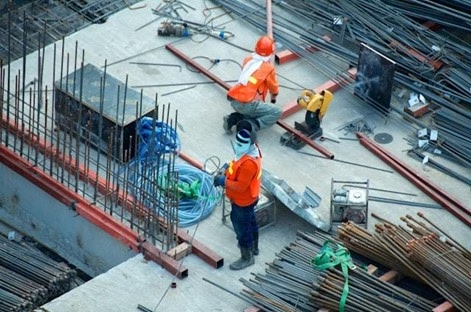constructionChoosing appropriate construction material providers significantly influences your project schedule, budget, and ultimate success. The distinction between efficient construction progression and expensive complications frequently depends on supplier relationship quality. Consider these five essential factors requiring thorough evaluation before making this critical decision.
Quality Standards and Certifications
Successful construction projects fundamentally depend on materials meeting or surpassing industry standards. Suppliers should implement strict quality control procedures and maintain appropriate industry certifications. Select suppliers capable of providing comprehensive specifications, testing documentation, and material verification. This transparency demonstrates quality commitment and confirms that materials will perform as expected throughout your project.
Suppliers implementing established quality management systems deliver products with fewer defects, minimal waste, and consistent performance. They invest in appropriate storage facilities, handling equipment, and personnel training to preserve material integrity from manufacturing through delivery. This methodical approach reduces project delays and minimizes material failures or replacement costs.
Reliability and Delivery Capabilities
Construction timelines permit little flexibility, and material delays can trigger substantial project disruptions. Assess suppliers based on delivery reliability history and capacity to increase supply during high-demand periods.
Consider suppliers with diverse distribution locations or strategic partnerships ensuring material availability despite regional shortages. Their distribution capabilities should match your project needs, whether requiring precise scheduled deliveries for space-constrained urban sites or volume shipments for extensive projects.
Evaluate suppliers operating numerous distribution facilities or maintaining strategic partnerships, guaranteeing material availability during regional scarcity. Their distribution capabilities should match your project needs, whether requiring precisely timed deliveries for space-constrained urban locations or volume shipments for major developments.
Companies like Select Sand and Gravel illustrate how suppliers with comprehensive delivery networks effectively manage substantial aggregate quantities under strict timelines, establishing them as valuable collaborators for time-critical projects.
Financial Stability and Pricing Structure
Supplier financial stability directly influences their capacity to fulfill extended contracts and sustain consistent service quality. Investigate their operational history, credit standing, and industry reputation before committing to major purchases. Financially sound suppliers more reliably honor warranty obligations, maintain equipment investments, and navigate economic challenges without service degradation.
Thoroughly analyze pricing structures, considering beyond initial quotations to understand comprehensive cost implications. Some suppliers offer attractive base prices but impose premium charges for expedited orders, specialized handling, or delivery adjustments.
Others provide quantity discounts, prompt payment benefits, or seasonal pricing variations that could substantially affect your project economics. Transparent pricing with explicit terms enables accurate budgeting and prevents unexpected expenses.
Geographic Coverage and Local Expertise
Local suppliers frequently offer benefits including cost efficiency, delivery adaptability, and familiarity with regional building requirements. They typically maintain established connections with area contractors, inspectors, and regulatory authorities, facilitating approval processes and expediting issue resolution. Regional suppliers also minimize transportation expenses and environmental impact while strengthening local economies.
Avoid automatically excluding national suppliers who may provide specialized products, advanced technical assistance, or competitive pricing through volume efficiencies. The critical factor involves identifying suppliers whose geographic coverage complements your project locations and future development plans. Evaluate their capacity to support multiple simultaneous project sites while maintaining uniform service quality across different regions.
Technical Support and Customer Service
Construction materials frequently necessitate specific handling, installation, or application methodologies. A construction material supplier offering thorough technical support, training resources, and field assistance provides substantial value beyond basic materials. This support proves especially valuable when utilizing specialized materials or implementing innovative construction techniques.
Assess their customer service responsiveness, problem-resolution capabilities, and willingness to develop customized solutions. Suppliers who position themselves as collaborative partners rather than mere vendors typically deliver superior long-term value through their dedication to your project outcomes.
Endnote
The construction material supplier selection process requires careful evaluation of these interconnected factors. Your chosen suppliers become integral partners in achieving project goals, making this decision one of the most important strategic choices in construction planning.

